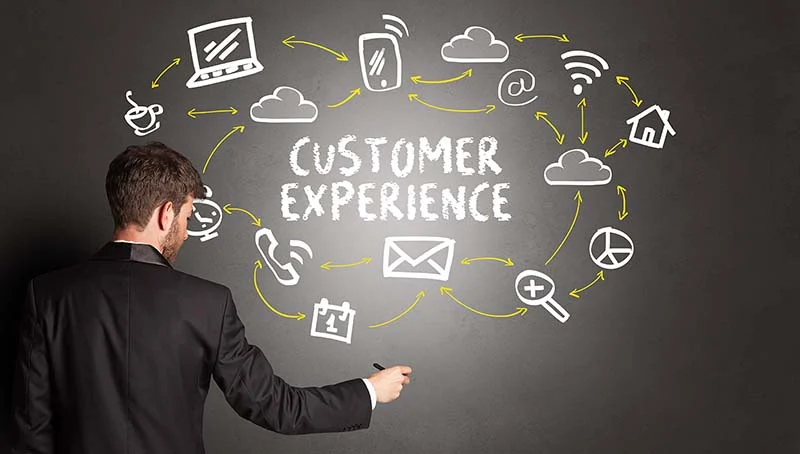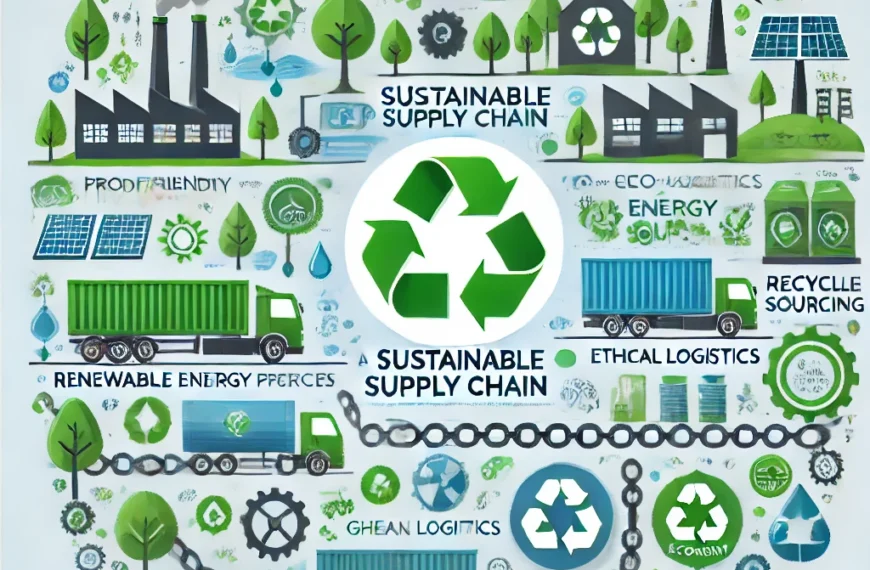Customer service has always been a critical component of any business. It’s often the first point of contact a customer has with a brand, and it plays a significant role in shaping their perception of the company. In today’s fast-paced and competitive marketplace, customer service is more important than ever. With the rise of social media and online reviews, a single negative customer experience can spread quickly and potentially damage a company’s reputation. On the flip side, a positive experience can turn a one-time customer into a loyal advocate for your brand.
The growing significance of excellent customer experiences cannot be overstated. Consumers now expect more than just functional products or services they demand personalized, seamless, and hassle-free experiences at every touchpoint. A customer’s overall experience with a brand goes beyond the transaction itself; it encompasses every interaction, from the initial inquiry to post-purchase support. Businesses that invest in delivering exceptional customer experiences are not only more likely to retain existing customers but also attract new ones through word-of-mouth and positive reviews.
A customer experience agency can be a game-changer. These agencies specialize in understanding and improving the customer journey, from refining touchpoints to enhancing communication strategies. They help businesses build stronger, more meaningful connections with their customers, leading to higher satisfaction rates, increased loyalty, and ultimately, improved business performance.

What Is a Customer Experience Agency?
A Customer Experience (CX) agency is a specialized firm focused on improving the overall experience that customers have with a business, across every interaction and touchpoint. Unlike traditional customer service departments that primarily handle inquiries, complaints, and issues, a CX agency takes a more holistic approach. Their goal is to design, implement, and optimize a seamless and positive experience for customers, ensuring that each interaction, whether it’s in-store, online, or over the phone, contributes to a customer’s satisfaction and loyalty.
A customer experience agency typically offers a range of services tailored to meet the specific needs of a business. These services may include:
- Customer Journey Mapping: Analyzing the entire path a customer takes from initial contact to post-purchase, and identifying key touchpoints that need improvement.
- Personalization Strategies: Developing customized experiences that resonate with customers on an individual level, leveraging data to anticipate their preferences and needs.
- Omnichannel Strategy: Ensuring that customers have a consistent experience across all communication channels—whether through social media, email, chat, or in-person.
- Customer Feedback and Analytics: Collecting and analyzing customer feedback through surveys, reviews, and other means to gain insights into pain points and areas for improvement.
- Employee Training and Empowerment: Providing customer service teams with the necessary tools, training, and resources to deliver exceptional service.
- Proactive Problem Resolution: Anticipating potential issues and addressing them before they escalate, creating a more positive and frictionless experience for the customer.
How These Agencies Differ from Traditional Customer Service Departments
While traditional customer service departments focus primarily on solving problems and responding to customer queries or complaints, customer experience agencies adopt a more proactive and strategic approach. Traditional customer service tends to be reactive—responding to issues after they arise. In contrast, CX agencies are focused on anticipating customer needs and improving experiences before a problem even occurs.
Furthermore, customer experience agencies view customer service as one piece of the larger puzzle. They understand that the customer journey includes a wide variety of touchpoints that go beyond simple issue resolution. These agencies aim to ensure that every interaction whether it’s browsing your website, interacting with customer support, or receiving a follow-up email is designed to delight the customer and build long-term loyalty.
Traditional customer service departments often operate in silos, focusing on specific functions like resolving complaints or processing orders. However, CX agencies adopt an integrated approach, ensuring that the business’s entire ecosystem marketing, sales, product development, and customer support works together to deliver a seamless experience.
Understanding the Customer Journey
The customer journey refers to the entire experience a customer has with a business, from the moment they become aware of a product or service to the post-purchase phase. This journey typically involves several key touchpoints and critical interactions where the customer engages with the brand. These touchpoints can include discovering the brand online, browsing the website, interacting with customer support, purchasing a product, and following up for customer service after the sale.
Each of these touchpoints plays a pivotal role in shaping a customer’s perception and loyalty to the brand. A customer experience agency maps out these interactions to identify friction points and areas for improvement. By understanding the customer journey in its entirety, a CX agency helps businesses create smoother transitions between each touchpoint, ensuring that customers feel valued and heard at every stage. The goal is to enhance every step of the journey, from pre-sale to post-purchase, to foster satisfaction and drive loyalty.
Personalization: Tailoring Services to Individual Needs
In today’s competitive marketplace, customers no longer expect generic, one-size-fits-all service. They want to feel that businesses understand their unique preferences, needs, and concerns. This is where personalization becomes crucial. Personalized experiences create a sense of connection and relevance, making customers feel valued and more likely to return.
A customer experience agency can implement personalized strategies by leveraging customer data and insights. By analyzing customer behavior, purchase history, and preferences, these agencies help businesses create targeted communication, offers, and product recommendations. For example, personalized email campaigns that recommend products based on past purchases or tailored responses from customer service that reference previous interactions can significantly enhance the customer experience. Personalization fosters a deeper bond between customers and brands, turning one-time shoppers into long-term loyalists.
Streamlining Communication Channels
Effective communication is a cornerstone of excellent customer service. In an era where customers interact with brands through various channels such as email, live chat, social media, and phone, ensuring consistency and clarity across all touchpoints is crucial. Disjointed or confusing communication can lead to frustration and dissatisfaction, potentially damaging customer relationships.
Customer experience agencies focus on streamlining communication by creating an omnichannel approach. This means integrating all communication channels so that customers receive consistent and responsive service no matter how they reach out. Whether a customer contacts a business via social media or calls the support line, they should receive the same high-quality service, with all their information readily accessible to the support team. This seamless communication minimizes customer effort, reduces friction, and helps businesses provide faster, more effective solutions.
Data-Driven Insights: Improving Service with Analytics
Data is a powerful tool for improving customer service. By collecting and analyzing customer data, businesses gain valuable insights into customer preferences, behaviors, and pain points. This information allows companies to make informed decisions about how to enhance their service and anticipate customer needs.
Customer experience agencies use analytics to identify trends, patterns, and areas of opportunity. For instance, by tracking customer satisfaction scores, feedback from surveys, or social media sentiment, an agency can pinpoint where the business excels and where it needs improvement. Furthermore, agencies use predictive analytics to forecast future customer behaviors, allowing businesses to take proactive measures to enhance service. By harnessing the power of data, agencies help businesses create more targeted, customer-centric strategies that improve overall service quality and customer satisfaction.
Training and Empowering Customer Service Teams
Even the most well-designed customer experience strategy is only as effective as the team implementing it. A key part of improving customer service lies in the hands of the employees who interact with customers daily. Training and empowering customer service teams ensures that they are equipped with the skills, knowledge, and confidence to provide exceptional service.
Customer experience agencies help businesses develop comprehensive training programs that focus on customer-centric skills, such as active listening, empathy, and problem-solving. These agencies also emphasize the importance of ongoing development, ensuring that teams stay updated on best practices and the latest customer service technologies. By empowering customer service teams with the right tools and training, agencies ensure that they can handle customer queries effectively and leave a lasting positive impression.
Proactive Problem Solving: Turning Issues Into Opportunities
A reactive approach to customer service waiting for problems to arise before addressing them can lead to dissatisfaction and missed opportunities. A proactive approach, on the other hand, anticipates potential issues and resolves them before they escalate, turning potential negative experiences into positive ones.
Customer experience agencies work with businesses to develop proactive service strategies. For example, they might implement automated alerts to notify customers of delivery delays before they even have to inquire. They may also encourage businesses to follow up with customers after a purchase, ensuring that any concerns or issues are addressed early on. By taking a proactive stance, agencies help businesses reduce customer frustration, improve retention, and foster stronger relationships with their customers.
Measuring Success: Metrics and Key Performance Indicators (KPIs)
To evaluate the effectiveness of customer service, businesses need to track specific metrics and key performance indicators (KPIs). These metrics provide measurable insights into how well a company is meeting customer expectations and where improvements can be made.
Customer experience agencies help businesses identify the most relevant KPIs for their service goals. Some common metrics include Customer Satisfaction Score (CSAT), Net Promoter Score (NPS), First Response Time (FRT), and Customer Effort Score (CES). By regularly monitoring these KPIs, agencies can assess whether customer service strategies are working and where adjustments are needed. With data-driven insights, businesses can refine their service approach to ensure that they continually meet and exceed customer expectations.
Case Studies: Real-World Examples of Improved Customer Service
To illustrate the tangible benefits of working with a customer experience agency, consider the case of a leading online retailer. The company partnered with a CX agency to enhance its customer service by implementing a comprehensive personalization strategy. By analyzing customer data, the agency helped the retailer tailor product recommendations, customer support interactions, and marketing messages to individual shoppers. As a result, the retailer saw a significant increase in customer retention, sales, and overall satisfaction.
Another example comes from a global hotel chain that sought to improve its guest experience. The hotel worked with a CX agency to map out the customer journey, identify pain points, and streamline communication across all channels. The agency implemented a unified booking system and enhanced the post-check-in experience by offering personalized recommendations based on guest preferences. The outcome was a measurable increase in positive reviews, repeat bookings, and overall guest satisfaction.
Read more: The Six Best Research Paper Writing Services in the UK
Conclusion
In today’s competitive business environment, exceptional customer service is no longer a luxury, it’s a necessity. Customers expect seamless, personalized experiences that make their interactions with a brand not only efficient but also memorable. A customer experience agency plays a crucial role in helping businesses meet these expectations by analyzing, enhancing, and optimizing every touchpoint along the customer journey.
By offering services such as journey mapping, personalization, omnichannel communication, and data-driven insights, a CX agency ensures that businesses deliver a consistent and positive experience across all stages of the customer lifecycle. Through strategic training and empowering customer service teams, as well as adopting proactive problem-solving techniques, these agencies help businesses anticipate needs and resolve issues before they arise, fostering stronger, longer-lasting relationships with customers.
Furthermore, the ability to track and measure success through key performance indicators (KPIs) allows businesses to continuously refine their strategies and ensure that they are always in tune with their customers’ evolving needs. Real-world examples demonstrate that businesses who invest in customer experience agencies see tangible improvements in customer satisfaction, loyalty, and ultimately, profitability.
Partnering with a customer experience agency is an investment in the long-term success of your business. By focusing on the customer journey, personalizing interactions, and continuously improving service, these agencies help businesses not only meet but exceed customer expectations, setting the stage for sustained growth and a competitive edge in the market.















